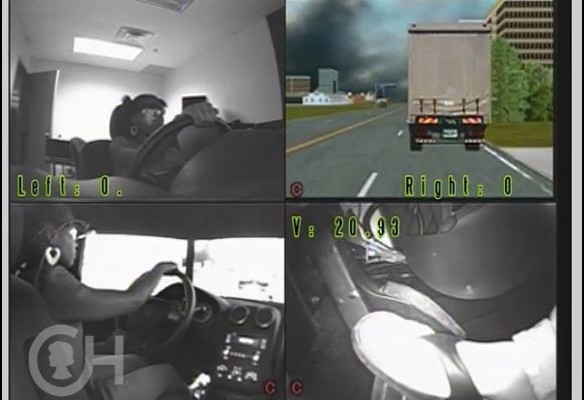
Newly Licensed Teens Lack Safe Driving Skills
June 11, 2015
Many newly licensed teen drivers lack the driving skills to drive safely according to a study sponsored by the Children’s Hospital of Philadelphia (CHOP) and published in the journal Injury Prevention.
It has long been known that a teen driver’s chances for being involved in a crash are greatest within the first three months after receiving their license. Even though they’ve passed their driving test and received a license, they lack the experience and training to recognize hazards ahead. State driving tests don’t have the capabilities to evaluate teen drivers under “real time,” hazardous road conditions.
Image courtesy of Insurance Institute for Highway Safety
The study compared teen drivers who had been licensed for less than three months with adult drivers who had more than five years driving experience and no crashes within the previous three years. Participants were evaluated in driving simulators that were programmed with 22 driving scenarios, each of which had the potential for a “negative outcome.”
In the study, 43 percent of the teen drivers experienced at least one simulated crash compared with 29 percent of the more experienced adult drivers. According to the researchers, the most common types of crashes involved left turns, rear-end events, and running off the road. For every error a teen driver made during the simulation, their chances of crashing or running off the road increased by eight percent.
While the newly licensed teens exhibited good basic driving skills such as choosing the proper lane, stopping for red lights, etc., they seemed to have difficulty when it came to recognizing, responding to, and braking for potentially hazardous situations.
Most states don’t require behind the wheel training in their teen driver education programs. Most states leave the behind the wheel driver education to their parents and those parents rarely have the training to properly teach the teen how to drive safely. Driver education programs that use driving simulators can be effective in teaching teens to anticipate and properly respond to a hazard in time to avoid a crash.
The videos below show three of the typical hazard scenarios where newly licensed teens failed to anticipate trouble ahead.
Read more: Many Newly Licensed Drivers Don’t Know How To Drive
